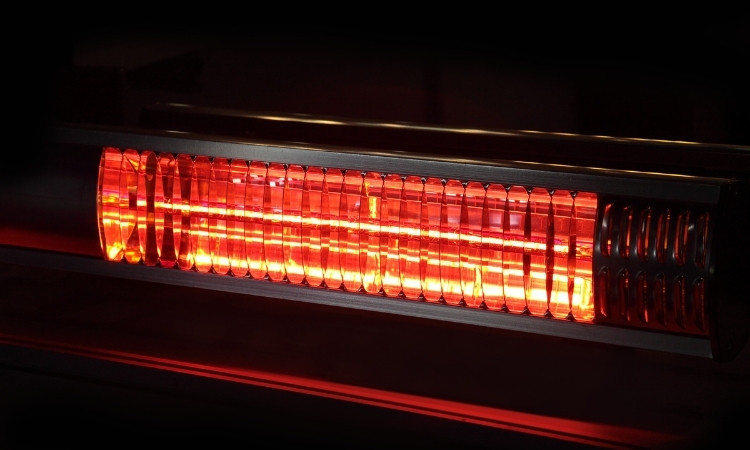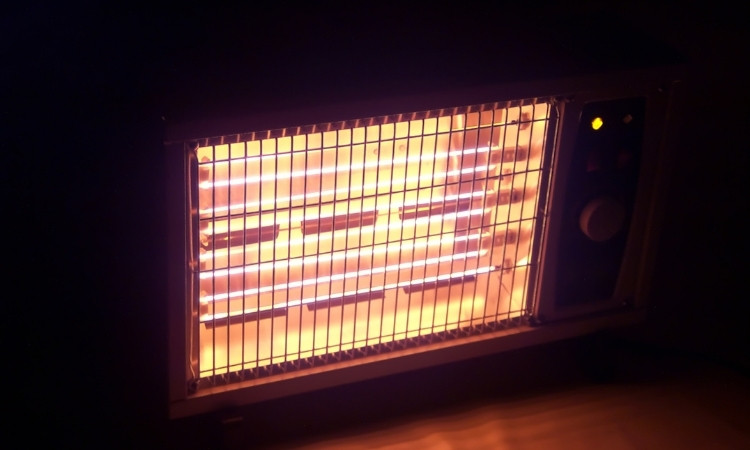Electric heater fires have emerged as an increasing threat across Singapore, especially during the wetter months or in air-conditioned spaces where people seek additional warmth. While electric heaters offer comfort and convenience, they can also pose serious fire hazards when used improperly.
This guide explores the common causes of electric heater fires, how to prevent them, and why Singapore residents must be extra cautious in high-density housing environments like HDB flats and condominiums.
LS Electrician Services Singapore explains the causes of electric heater fires in Singapore. It is important to note that their professional exhaust fan installation, lighting protection system, and switch installation services need no introduction in Singapore.
The Hidden Dangers Behind Electric Heater Fires in Singapore
Singapore may not experience winter, but the combination of frequent rainy days, heavy air-conditioning, and elderly residents who are more sensitive to cold means electric heaters are more common than one might assume. Electric heater fires in Singapore have made headlines in recent years, especially in cases where heaters were left unattended or overloaded with power adaptors.
In high-density housing environments like HDB flats and condominiums, fire safety is non-negotiable. A single heater mishap can escalate quickly due to the limited space, proximity of flammable materials, and shared building infrastructure. Understanding the causing of electric heater fires is not just useful knowledge; it’s essential home safety.
Common Causes of Electric Heater Fires
The cause of electric heater fires often stems from a combination of design flaws, user error, and environmental factors. Here’s a breakdown of the key causes specific to homes in Singapore:
1. Overloaded Power Sockets
The scarcity of electrical wall outlets in Singaporean homes drives homeowners to distribute their power via multiple adaptor devices across their living spaces. When electric heaters are connected through power strips and extension cords, their combined power consumption exceeds the outlet capacity, which is a recipe for disaster.
These heaters draw high wattage, and an overloaded socket can overheat, spark, and ignite nearby materials.

2. Use of Non-Certified Devices
Among several electric heater fires reasons, one of the most common is the use of cheap, non-compliant heaters bought online or from overseas. These heaters often lack thermal cut-offs, flame-retardant materials, or circuit protection.
In Singapore, any appliance sold locally must carry the Safety Mark issued by Enterprise Singapore, ensuring compliance with national electrical safety standards. Unfortunately, many residents unknowingly purchase uncertified devices during online sales.
3. Placement Near Flammable Materials
Placing your heater near curtains, rugs, beds, or paper products can lead to rapid fire spread. This is particularly dangerous in small HDB bedrooms or tight service yards. Heaters need at least 1 meter of clearance on all sides to operate safely. Don’t underestimate how fast things catch fire with direct heat exposure.
4. Lack of Maintenance
Heating elements become fire hazards when dust builds up in them. Singapore’s high temperatures cause small particles to attach themselves to ventilation components and heat coils, leading to airflow blockages while devices generate excessive heat.
Regular cleaning is rare among users, especially when heaters are only used seasonally. Neglected devices can short-circuit or overheat without warning.
5. Lack of Automatic Shut-off
Many older or budget heaters lack tip-over protection or thermal cut-off features. In the event a heater falls over or overheats, it may continue running, igniting surfaces beneath it. Households with children and pets face higher safety risks since they might knock a heater over.
6. Negligence and Human Error
Simply forgetting to switch off the heater before leaving the house or falling asleep with it running is one of the biggest causes of electric heater fires. In tight-knit homes where beds are close to heaters, the consequences can be devastating. Always make it a habit to double-check before stepping out or going to bed.

7. Obstructed Airflow and Overheating
Singaporean homes tend to have limited ventilation. When an electric heater’s air vents are blocked by dust, clothes, or nearby furniture, the device cannot cool itself properly. Overheating components, particularly near plastic fixtures or wooden flooring, can cause sparks or flames.
Heaters placed under desks and close to beds or laundry areas without sufficient room pose a fire risk.
Why Does My Electric Heater Fire?
If you’ve asked yourself, “Why does my electric heater fire when it seems to be working fine?”, the answer usually lies in subtle but critical factors:
- Is your heater plugged directly into a wall outlet, or are you using an overloaded adapter?
- Does the heater have the Singapore Safety Mark?
- Is it placed near soft furnishings or cluttered corners?
- Is it a few years old and never serviced or cleaned?
Even a minor issue, like a bent plug pin or frayed cable, can create the right conditions for a fire. Fires don’t happen randomly; they are always a result of specific oversights.
Electric Heater Safety Tips
- Use certified products: Always buy heaters with the Singapore Safety Mark.
- Avoid adaptors: Plug heaters directly into wall outlets.
- Keep it clean: Dust buildup can lead to overheating.
- Clear surroundings: Maintain at least 1-meter clearance.
- Don’t leave it unattended: Especially around children or pets.
Conclusion
Electric heater fires in Singapore don’t happen out of the blue. They usually stem from things many of us don’t think twice about, like plugging a heater into a cheap extension cord, using an old device that’s never been checked, or placing it a little too close to the bed. In a small flat or condo, these small mistakes can turn into major accidents.
The good news? Most of these fires can be prevented. It really comes down to using the right type of heater, following some basic safety habits, and staying aware of your surroundings. If you live in a compact space, like many of us do in Singapore, this matters even more.
In the end, staying warm should never come at the cost of safety. Understanding the causes of electric heater fires means you’re already one step ahead.
